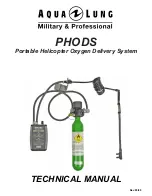
Test Procedures
ZINC
ZINCON METHOD • CODE 3667-SC
QUANTITY
CONTENTS
CODE
30 mL
* Zinc Indicator Solution
*6314-G
120 mL
* Methyl Alcohol
*6319-J
10 g
Sodium Ascorbate Powder
6316-D
25 g
* Zinc Buff er Powder
*6315-G
15 mL
* Sodium Cyanide, 10%
*6565-E
30 mL
* Formaldehyde Solution, 37%
*5128-G
1
Dilute Zinc Indicator Solution Bottle,
with 1 mL pipet assembly
6321-MT-G
1
Graduated Cylinder, 10 mL, glass
0416
1
Spoon, 0.5 g, plastic
0698
2
Pipets, plain, plastic
0352
1
Spoon, 0.1 g, plastic
0699
*WARNING:
Reagents marked with an * are considered to be potential health hazards. To
view or print a Safety Data Sheet (SDS) for these reagents go to www.lamotte.com.
Search for the four digit reagent code number listed on the reagent label, in the contents
list or in the test procedures. Omit any letter that follows or precedes the four digit code
number. For example, if the code is 4450WT-H, search 4450. To obtain a printed copy,
contact LaMotte by email, phone or fax.
Emergency information for all LaMotte reagents is available from Chem-Tel:
(US, 1-800-255-3924) (International, call collect, 813-248-0585).
Zinc enters the domestic water supply from the deterioration of galvanized iron and
brass pipes, and from industrial wastes. Zinc is an essential element for body growth and
development and is an important plant nutrient. Concentrations of zinc above 5.0 mg/L in
drinking water can cause a bitter astringent taste. In the U.S., zinc concentrations may vary
between 0.06 to 7.0 mg/L, with an average value of 1.33 mg/L.
SMART Spectro 2 Test Procedures 05.02.16
ZINC
www.
GlobalScientificSupply
.com
GLOBAL SCIENTIFIC SUPPLY
The Laboratory Supply Company!






































